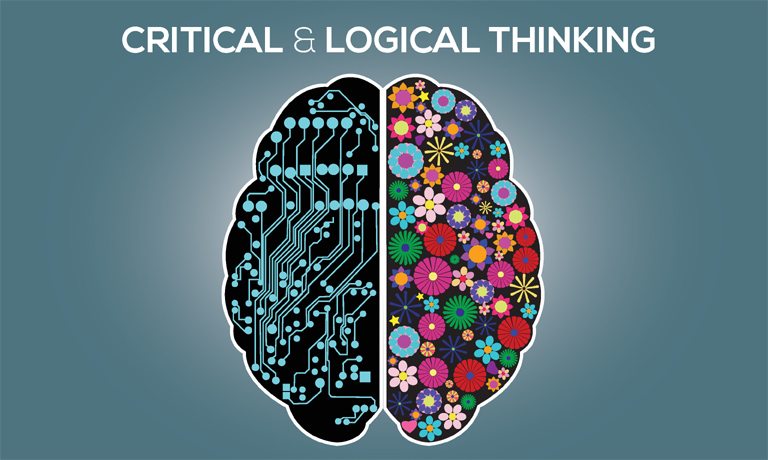
With a lot of complex definitions regarding the term, ‘logical reasoning’ seems something very scientific or hard to grasp. The easiest way to figure it out is by asking a simple question: Is it something that makes sense? Primarily, when talking about logic, we are simply investigating whether the idea, the statement or the conclusion make sense.
Derived from the Greek philosophical term ‘-logikos,’ logic is defined as the field of study to investigate the senses and reality. With a world ruled by ones and zeros, it is absolutely essential to incorporate this slippery term in both our vocabulary and in our work practices.
‘Rationality’ being the keyword, logical reasoning is a process that takes place in the left hemisphere of the human brain. Taking all the relevant data into consideration, the logical left brain pulls up strategies based on the holistic knowledge and the individual past experiences to tackle the issue using a calm and problem-solving mindset.
Logical thinking is the fundamental act of analyzing a problem or a scenario and then coming up with a rational and satisfactory answer or conclusion. On similar lines as critical thinking, logical thinking practices benefit from the use of logical reasoning skills to analyze and treat a problem objectively and distantly, which allows an individual to make an all-round, holistic conclusion as to how to take action.
The importance of critical thinking is greater because it can help an individual reason through all the essential decisions, help them in solving the work problems, come up with creative ideas, and set SMART, achievable goals. All of these things are absolutely necessary for the advancement and development of your career.
Whether one has just begun working in a new environment or wants to fast-track their career, everyone will certainly come across multiple challenges on a daily basis which requires logical thinking skills. The stronger these skills are, the more superior the ability to come up with creative solutions and well-drawn plans that help both you and your workplace.
Here are few examples of critical thinking –
- A Doctor analyzes the patients at hand and decides the order by which the patients should be treated.
- A Carpenter evaluates the tools and specific materials that would best suit a particular job.
- A Lawyer reviews the facts, alibis and evidence to devise a strategy to gain success in a case to decide whether to go to court or to settle outside of the court.
- A mid-level manager analyzes consumer feedback forms and uses the data to develop customer service training for employees.
Importance of logical thinking at the workplace
Hard work demands the best of an individual. The way they make decisions, stay on top of things and multi-task is what is appreciated and encouraged in any workspace.
Our logical thinking skills are hindered at times due to close-knit emotional elements at play. It is important to understand that one cannot achieve everything they want if they keep everything inside. Wavering from the path of critical and analytical thinking in a workplace can mean loss of time, the expenditure of physical and emotional and mental or cognitive resources.
Maintaining complex social and professional relationships also requires a healthy critical thinking mindset. One needs to stay sharp and logical about affect or emotional states in the workplace. Work is something that an individual gives their major part of the day for, so it is important that they are comfortable for them as well as the coworkers.
Inclusion of critical thinking skills is essential in the workplace as daily work demands a lot of attention and sharpened cognition. A major amount of work relies on using your mental abilities instead of physical prowess. Whether it is long hours of coding, or meetings with the clients, it is important to equip yourself with these tools. Develop your reasoning logically skills and unleash the power of logical thinking skills at the workplace and in your day-to-day life.
